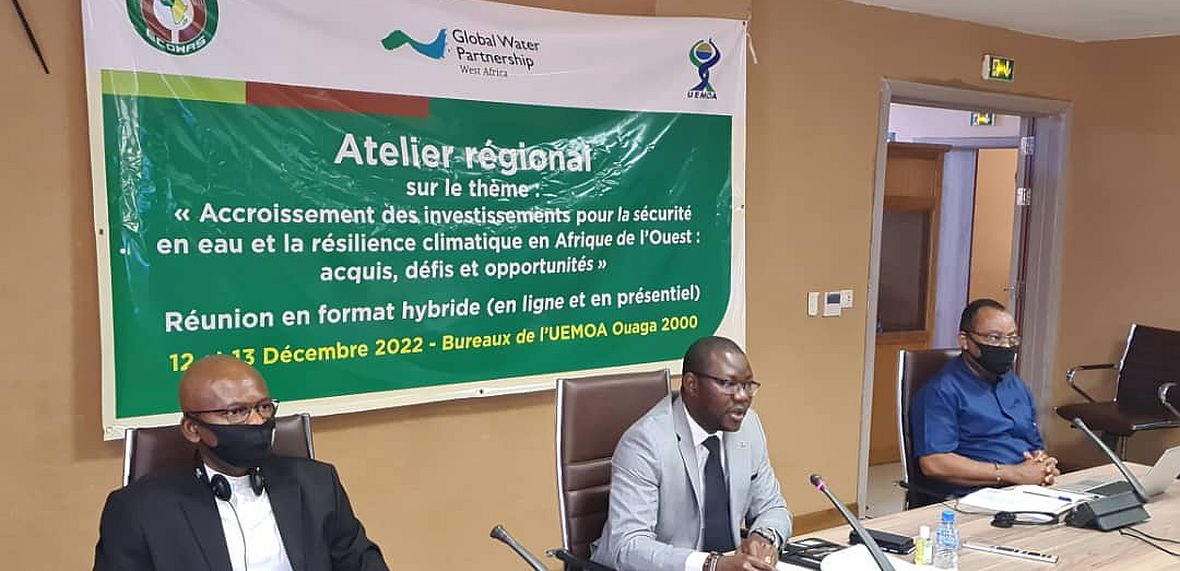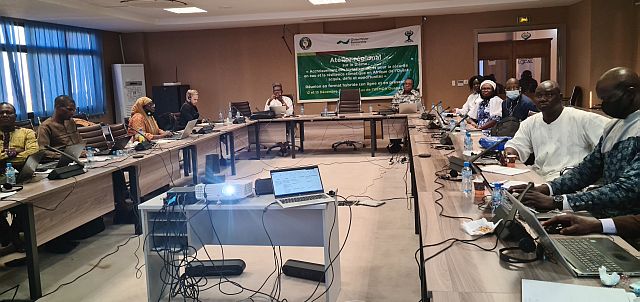 It was organised by the Economic Community of West African States (ECOWAS) and UEMOA Commissions in collaboration with the Global Water Partnership in West Africa (GWP-WA) and the Global Secretariat and Africa Coordination Unit of the Global Water Partnership (GWP). The initiative is part of the implementation of the West African Water Resources Policy (PREAO) and the Common Policy for the Environment Improvement (PCAE) of the WAEMU as well as the Water Climate Development and Gender Equality Programme (AIP WACDEP-G) in West Africa.
It was organised by the Economic Community of West African States (ECOWAS) and UEMOA Commissions in collaboration with the Global Water Partnership in West Africa (GWP-WA) and the Global Secretariat and Africa Coordination Unit of the Global Water Partnership (GWP). The initiative is part of the implementation of the West African Water Resources Policy (PREAO) and the Common Policy for the Environment Improvement (PCAE) of the WAEMU as well as the Water Climate Development and Gender Equality Programme (AIP WACDEP-G) in West Africa.
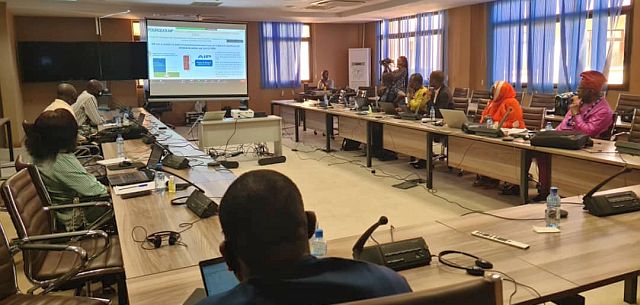 The West African region is facing major environmental challenges aggravated by climate issues. Despite the alarming climate context, investments for water security and climate resilience remain low in the region. Indeed, the financing needs for the implementation of the Nationally Determined Contributions (NDCs) of West African countries, of which a significant part is related to water as an adaptation priority, are estimated at 294 billion dollars per year by 2030. However, over the period 2013-2018, countries in the region received, on average, only US$2.6 billion per year in international public climate finance, mainly from multilateral development banks, followed by bilateral sources and climate funds.
The West African region is facing major environmental challenges aggravated by climate issues. Despite the alarming climate context, investments for water security and climate resilience remain low in the region. Indeed, the financing needs for the implementation of the Nationally Determined Contributions (NDCs) of West African countries, of which a significant part is related to water as an adaptation priority, are estimated at 294 billion dollars per year by 2030. However, over the period 2013-2018, countries in the region received, on average, only US$2.6 billion per year in international public climate finance, mainly from multilateral development banks, followed by bilateral sources and climate funds.
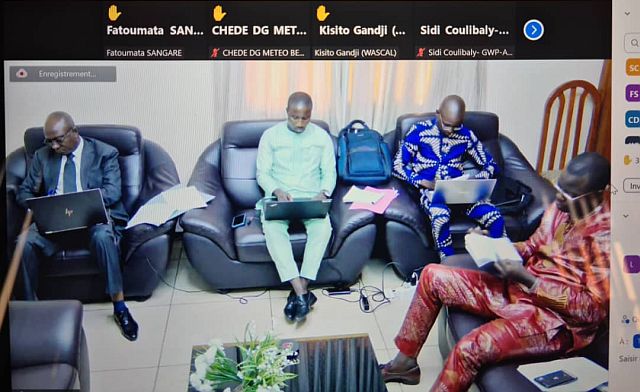 To address the challenge of scaling up investment for water and climate resilience in Africa by 2030, the Assembly of the African Union Heads of State and Government adopted the Continental Africa Water Investment Programme (AIP)[1] at its 34th Ordinary Session, held on 7 February 2021 in Addis Ababa, Ethiopia. This adoption is part of the implementation of the Programme for Infrastructure Development in Africa – Priority Action Plan 2 (PIDA-PAP 2). The goal of the AIP is to transform and improve investment opportunities for water security and sustainable sanitation for a prosperous, peaceful and equitable Africa.
To address the challenge of scaling up investment for water and climate resilience in Africa by 2030, the Assembly of the African Union Heads of State and Government adopted the Continental Africa Water Investment Programme (AIP)[1] at its 34th Ordinary Session, held on 7 February 2021 in Addis Ababa, Ethiopia. This adoption is part of the implementation of the Programme for Infrastructure Development in Africa – Priority Action Plan 2 (PIDA-PAP 2). The goal of the AIP is to transform and improve investment opportunities for water security and sustainable sanitation for a prosperous, peaceful and equitable Africa.
 The development of the Regional Investment Programme for Climate Resilient Water Security and the Water Sector Readiness Programme for accessing Green Climate Fund (GCF) resources and other funding sources in West Africa is part of the continental effort to reduce and even fill the water investment gap in Africa. This initiative has the political support of the ECOWAS Commission, the WAEMU Commission and the Global Water Partnership in West Africa as well as other partners.
The development of the Regional Investment Programme for Climate Resilient Water Security and the Water Sector Readiness Programme for accessing Green Climate Fund (GCF) resources and other funding sources in West Africa is part of the continental effort to reduce and even fill the water investment gap in Africa. This initiative has the political support of the ECOWAS Commission, the WAEMU Commission and the Global Water Partnership in West Africa as well as other partners.
The main objective of the regional workshop is to contribute to increasing investments for water security and climate resilience in West Africa, by accelerating countries' access to GCF resources and other funding sources, including the readiness and country preparatory support programme resources as well as opportunities for developing a regional water resilient climate investment programme.
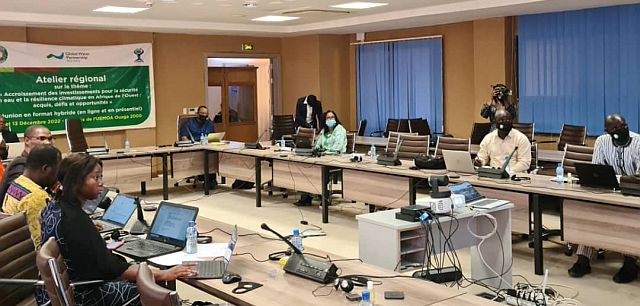 The following recommendations were made:
The following recommendations were made:
For climate finance windows:
- Further disseminate the mechanisms and procedures for accessing climate finance;
- Build the capacities of national, regional and transboundary partners on access to climate finance.
For basin organisations:
- Initiate bankable and participatory transboundary projects;
- Strengthen the institutional capacities of the RBOs in terms of setting up and implementing climate projects.
For ECOWAS and UEMOA Member States:
- Ensure political support for national and regional water and climate projects;
- Strengthen national capacities to access resources from climate finance windows;
- Set up a pool of experts for the mobilisation of financial resources.
To the ECOWAS and WAEMU Commissions:
- Ensure political leadership of regional water and climate projects;
- Support TBOs and national partners in the mobilisation of financial resources
To the ECOWAS and UEMOA Commissions:
- Ensure political leadership of regional water and climate projects;
- Support TBOs and national partners in the mobilisation of climate finance resources and other relevant windows;
- Be heavily involved in the development, implementation and monitoring and evaluation of all climate and water initiatives;
- Establish pools of experts, in-country and at regional level, capable of supporting the development and submission of bankable climate resilient projects acceptable to the various climate finance windows.
To Accredited Entities:
- Trengthen collaboration and communication with other national and regional project entities;
- Work closely with national structures and funding window focal points for the submission of bankable projects.
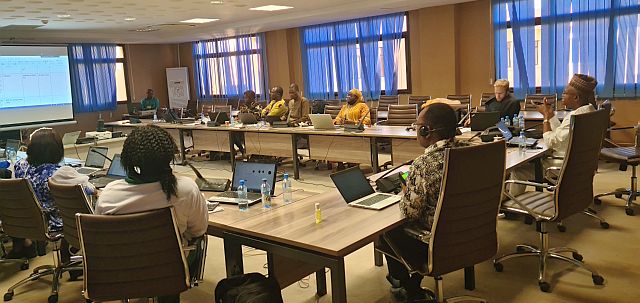
[1] For more information on the AIP programme, please click on the following link: https://aipwater.org
The initiative is part of the implementation of the West African Water Resources Policy (PREAO) and the Common Policy for the Environment Improvement (PCAE) of the WAEMU as well as the Water Climate Development and Gender Equality Programme (AIP WACDEP-G)[1] in West Africa.
[1] AIP WACDEP-G is funded by the Austrian Development Agency (ADA) and partners such as the Green Climate Fund (GCF), the Swedish International Development Cooperation Agency (Sida), the Swiss International Cooperation Agency (SDC) and GWP.
